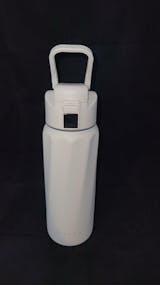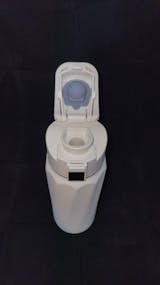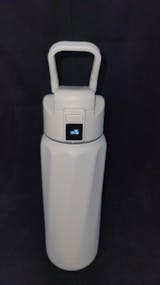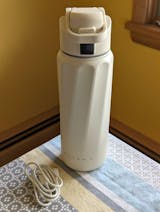
Hydration and Longevity: What Centenarians Teach Us About Drinking Water
As the quest for longer, healthier lives becomes more mainstream, many people are turning their attention to those who’ve already achieved it—centenarians, people who live to 100 years or more. While genes play a role, research shows that daily habits truly make the difference—and hydration is one of the simplest yet most powerful among them.
So, what can we learn from the water-drinking habits of the world’s longest-living people? Let’s explore what science and centenarians have to say.
The science of hydration and aging

As we age, our bodies lose water and become less efficient at retaining it. The sense of thirst also declines, making older adults more prone to dehydration. This is significant because even mild dehydration can cause or worsen:
- Fatigue and low energy
- Joint pain
- Digestive issues
- Confusion or cognitive decline
- Kidney function deterioration
On the flip side, proper hydration supports nearly every major function in the aging body, including brain health, joint flexibility, digestion, and skin elasticity. Water helps maintain circulation, regulate temperature, and flush out toxins. Staying consistently hydrated is one of the most affordable and accessible longevity strategies.
Who are the centenarians?
Centenarians tend to live in specific geographic areas called Blue Zones—regions where people regularly live well into their 90s and 100s. These include:
- Okinawa, Japan
- Sardinia, Italy
- Nicoya Peninsula, Costa Rica
- Ikaria, Greece
- Loma Linda, California (USA)
While each region has its own unique culture and climate, they all share several core lifestyle traits: plant-based diets, natural movement, strong social ties, low stress, and, yes, thoughtful hydration habits.
Water habits from the world`s longest-living people

Okinawa, Japan
Okinawans often start their day with warm liquids such as tea or miso broth. They sip water throughout the day in small amounts, often with meals, and rarely drink anything sweetened. The focus is on mindful hydration—drinking slowly and deliberately.
Sardinia, Italy
This mountainous island is known for its naturally sourced spring water, which is rich in minerals like calcium and magnesium. Sardinians enjoy herbal infusions and local wines in moderation, but water remains their daily hydration staple.
Nicoya Peninsula, Costa Rica
Nicoya's water is naturally high in calcium and magnesium, essential for strong bones and overall health. In the hot climate, frequent hydration is a necessity. Centenarians here drink water throughout the day without relying on sugary drinks.
Ikaria, Greece
Ikarians drink plenty of herbal teas from native plants known for their anti-inflammatory properties. Clean, fresh well water is consumed alongside meals, and coffee or wine is enjoyed in moderation and always with company.
Loma Linda, California
Home to a large population of Seventh-day Adventists, Loma Linda promotes a lifestyle that includes plant-based eating and frequent water intake. Many residents avoid caffeine, soda, and alcohol, choosing water and herbal teas as their main beverages.
What centenarians don`t do with water?
While their hydration habits vary slightly, centenarians tend to avoid several modern hydration mistakes:
- They don’t drink sugary sodas or energy drinks.
- They don’t overconsume caffeine or rely on coffee as their only beverage.
- They avoid gimmicks, like fad detox waters or excessive electrolyte drinks.
- They don’t chug gallons of water in one sitting—instead, they hydrate gradually and consistently.
The centenarian hydration approach is simple, natural, and in tune with their body’s signals.
Practical tips for drinking water like a centenarian
Want to adopt longevity-inspired hydration habits? Here are some tips:
✅ Start your day with water – A warm glass of water or herbal tea helps kickstart your metabolism and digestion.
✅ Sip consistently throughout the day – Keep a smart water bottle nearby and drink small amounts regularly.
✅ Eat water-rich foods – Fruits, vegetables, and soups contribute significantly to your hydration levels.
✅ Choose high-quality water – Use filtered or natural spring water to avoid contaminants.
✅ Make hydration enjoyable – Add lemon, cucumber, or herbs to enhance flavor and encourage regular drinking.
✅ Don’t wait to feel thirsty – Especially in older adults, thirst is not always a reliable hydration cue.
The role of clean water in healthy aging
Centenarians often have access to natural, mineral-rich, or clean well water. However, tap water in modern urban environments can contain pollutants such as lead, chlorine, and microplastics.
To protect long-term health, consider:
- Using a water filter certified to remove heavy metals and chemicals.
- Avoiding plastic bottles (which may leach harmful chemicals over time).
- Monitor your local water report for safety levels and contaminants.
Good hydration isn’t just about quantity—it’s also about quality.
FAQs
Are hydration needs different in colder climates?
Yes. People often forget to drink water in cold weather, but dry air and indoor heating can cause dehydration.
Does water quality impact aging?
Absolutely. Contaminated water can introduce harmful substances that stress the liver, kidneys, and immune system over time.
How much water should older adults drink each day?
Generally, 6–8 cups (1.5–2 liters) of fluid daily is recommended, but needs vary by body size, activity, and climate. Sip consistently rather than drinking large amounts at once.
Conclusion
The world's longest-living people don’t follow fads—they follow intuitive, consistent habits, and hydration is a key part of their lifestyle. They remind us that longevity isn’t just about genetics—it’s about the small, sustainable choices we make daily. So, drink up not just for today, but for the long road ahead. Follow WaterH to find more tips for staying well-hydrated.

















